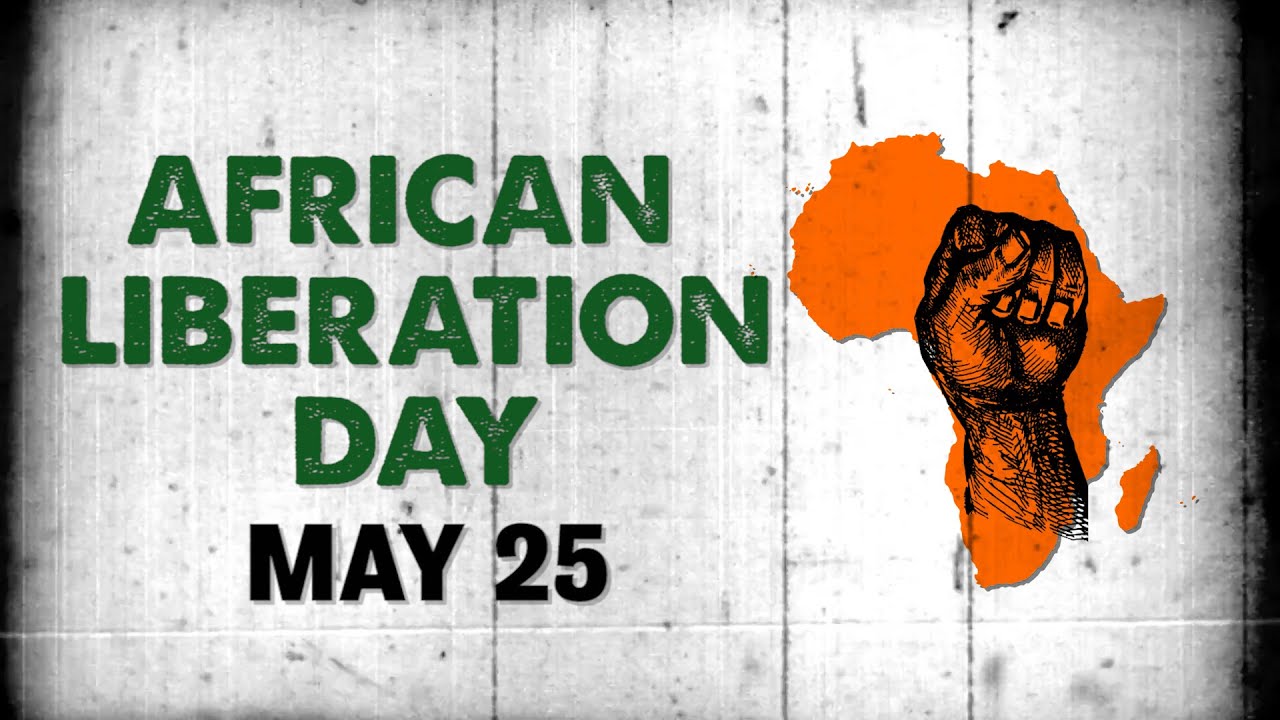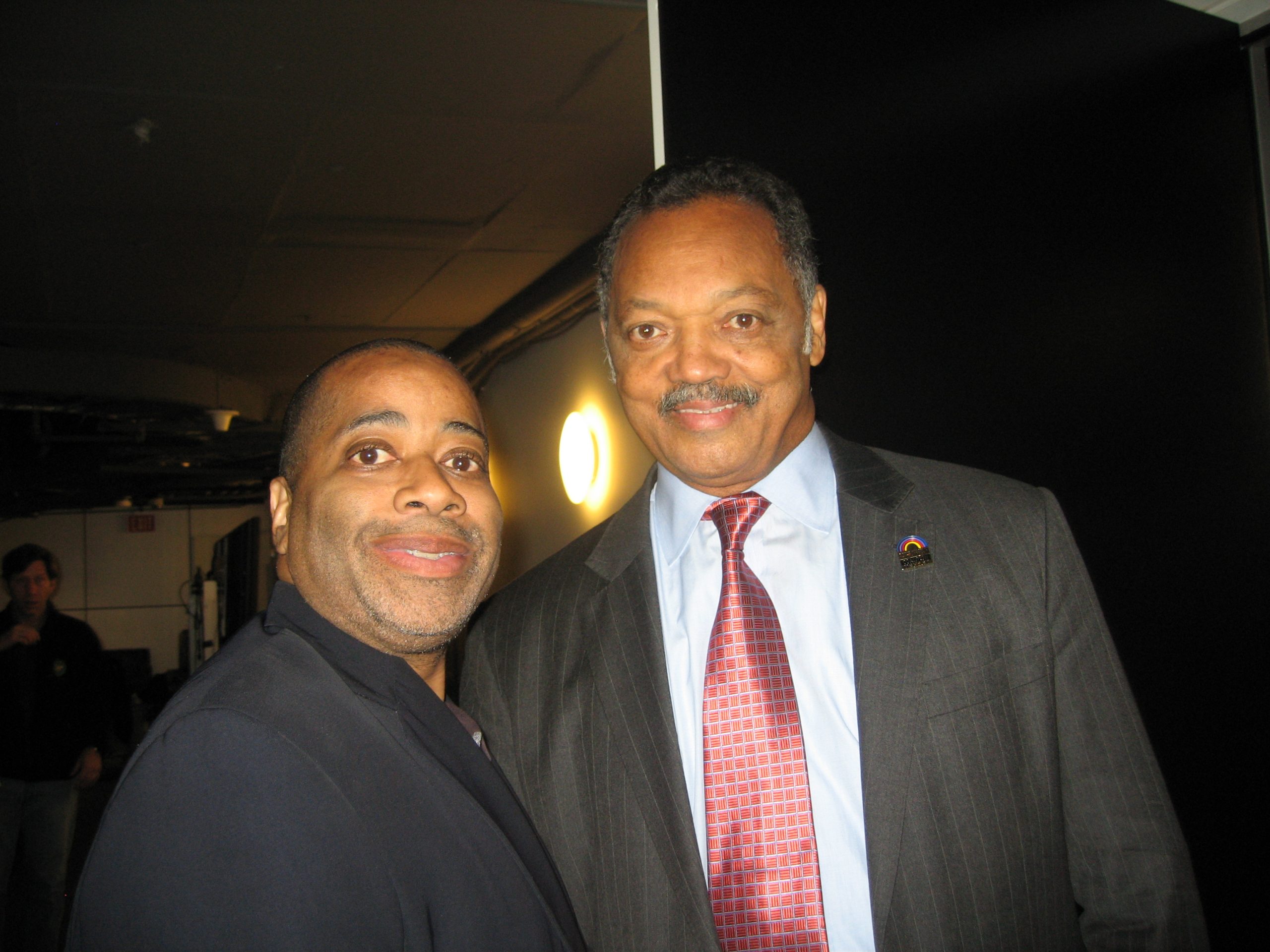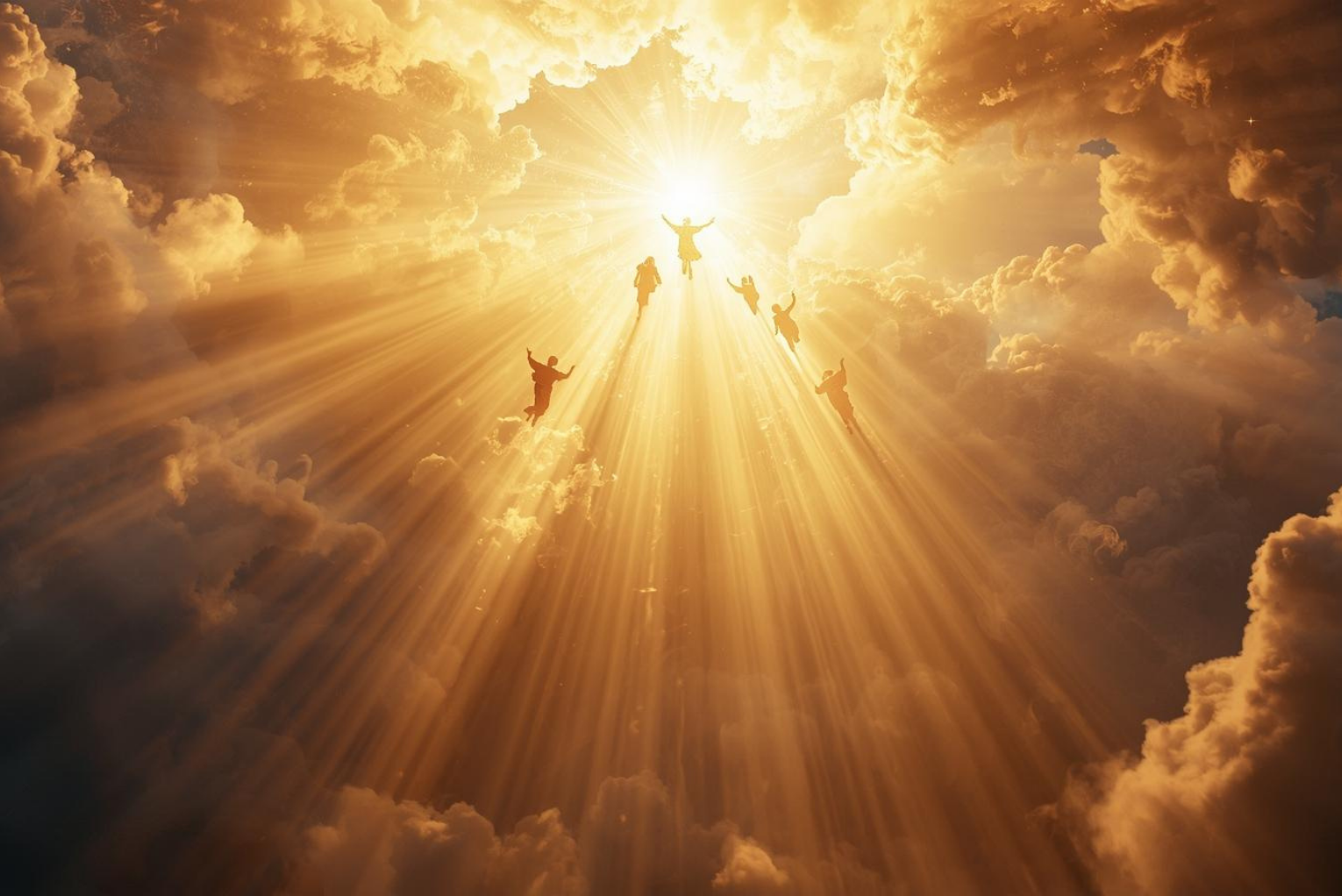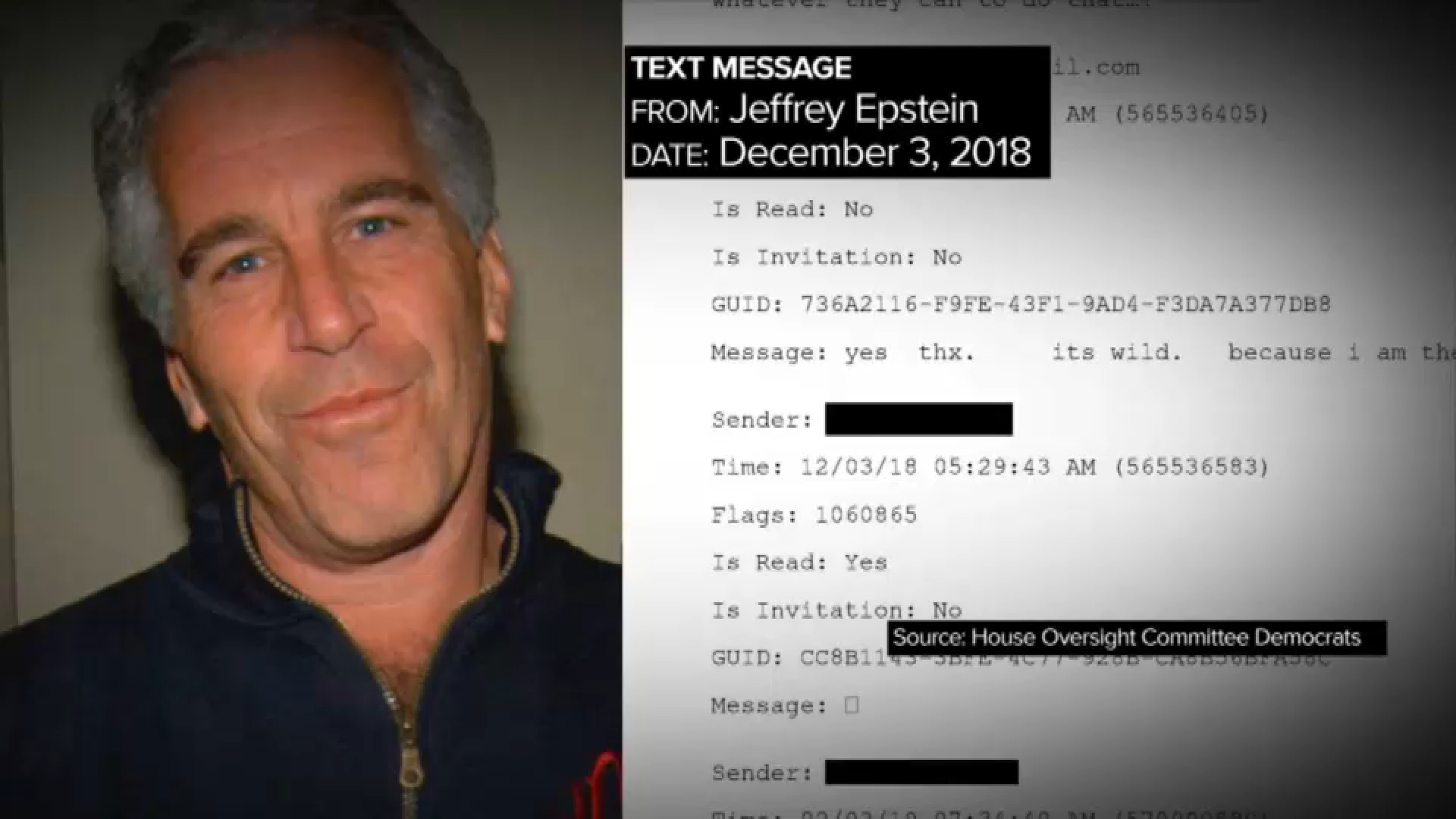(ThyBlackMan.com) On behalf of the African American Cultural Center (Us), we send greetings of solidarity and increased and continuing struggle to all African peoples throughout the world African community, and all oppressed, struggling and freedom-seeking peoples in the world on this African Liberation Day, May 25, in its 59th year of founding in Addis Abba 1963 by the Organization of African Unity. Let us begin as we always do at every important event with rightful homage to our honored ancestors. We thus offer tambiko, sacred words and water, to those who opened the way for our movement forward, who are the bridges that carried us over, and who lifted up the light that lasts, our deepest and most defining moral and spiritual values.
Let it be said of us, we honor them through our still standing steadfast in struggle, still speaking truth to the people and to power, still cutting and burning through the fog and forest of falsehood, fear-mongering, racist rant, and the oppressor’s inanities about their god giving them the right to plunder and oppress the world and all in it. And let it be said we did not falter or lose faith, turn our backs on our Blackness, or let ourselves be seduced by the siren songs of the oppressor, promising a deforming and degrading comfortable place in oppression.

The struggle for African liberation, the liberation of African people of the world has been a long, difficult, dangerous, deadly and demanding one. Bu this is the choice our ancestors made and left us as legacy to embrace and extend. It is a fundamental struggle, for as Haji Malcolm taught, “freedom is essential to life” and without freedom we can never satisfy our material needs, know our true selves or flourish and come into the fulness of ourselves. Also, as Nana Amilcar Cabral taught our liberation struggles have “a deep significance for both Africa and the world” and thus we must “regard ourselves as deeply committed to our people and committed to every just cause in the world” also. Indeed, as we say in Kawaida, our ultimate goal is to achieve, secure and increase African and human good and the well-being of the world.
African liberation is not only a world-encompassing project, but also a living practice of our daily lives. It is about the way we live our lives, do our work and wage our struggles to resist oppression, build and push our lives forward and achieve freedom, secure justice and expand the struggle for good in and for the world. Since the 1960s, our organization Us has taught that our struggle is a dual one: a struggle to be ourselves and to free ourselves. And we know we cannot free ourselves if we don’t be ourselves, but we can only be ourselves if we fully free ourselves. This is why we argued then and now that the quality of our lives and the success of our liberation struggle depend upon our waging cultural revolution within and political revolution without, resulting in the radical reconception and reconstruction of self, society and the world. It is at this point that Haji Sekou Toure calls for full re-Africanization, recover their own conscience, reconvert ourselves in their thoughts and practices to the values, the conditions and interests of Africa.” Also, Haji Malcolm taught that “until we recapture our identity and heritage (as African people)(, we can never break the bonds of white supremacy.”
The Nguzo Saba, an African value system, offer us an African foundation and framework for how we live our lives, do our work in the world and wage our struggles for liberation and ever higher levels of human life. They begin with the principle of Umoja (unity) which cultivates in us a sense of togetherness in life, work and struggle. It reminds us, as Nana Osagyefo Kwame Nkrumah taught, that the solution to our problem and the success of our liberation struggle begins with unity. He says, “It is clear that we must find an African solution to our problems and that this can only be found in African unity. Divided we are weak (but Africa united could become one of the greatest forces for good in the world.”
The second principle Kujichagulia (Self-Determination) teaches us that we must think our own thoughts, be rooted in our own culture, and control the space we occupy. We must be independent of others’ control and undue influence. As Nana Cabral says, it is quest of the total sovereignty of our people, their right and will “to construct for themselves in peace and dignity, by expending their own efforts and sacrifices, marching on their own feet and guided by their own minds, (achieving) the progress to which they have a right like all the peoples of the world.”
The third principle Ujima (Collective Work and Responsibility) teaches us we must together build the strong community, the just society and the good world we all want and deserve to live in. Here it is important to realize that this principle supports a concrete Pan-Africanism, a practice of unity and common work and struggle of Africans everywhere and on every front. It recognizes Haji Malcolm’s teaching that “wherever Black people are is a battleline.” And that battleline can be in various forms of confrontation with the established order or can be the battle, the self-conscious struggle, to serve our people in the midst of oppression and resistance, especially in this time of the pandemic of covid-19 and the horrific efforts of climate change, such as drought, famine, flood and death.
The principle of Ujamaa (Cooperative Economics) reaffirms the central moral imperative of shared work and shared wealth. It is a central concern that the human person or people are each worthy of the best lives possible. It means struggle constantly to secure the necessities of life for our people everywhere. It means building the people’s capacity as Nana Wangari Maathai says, so that they can “make decisions on their own for benefit of the community, their country and the environment that sustains them.” Here the projection of both the people and the environment from plunder and waste in the capitalist and consumerist mindless and immoral pursuit of wealth. For as Nana Mwalimu Julius Nyerere taught, “There are more important things in life than the amassing of riches and if the pursuit of wealth clashes with thinks like human dignity and social equality the latter (must) be given priority.” Also, the principle and practice of Ujamaa rejects capitalist, corporate and predatory appropriation of African lands and resources, supports debt cancellation, reparations and recovery of stolen cultural and economic treasures and the wealth being returned to the peoples of Africa.
The fifth principle of Nia (Purpose) tells us that with work and struggle of an African renaissance on the continent, but also throughout the world African community. It fosters the vision and call of Nana Marcus Garvey who said he saw emerging from our self-conscious work and struggle “a new world of Black people, a notion of sturdy people making their impression of civilization and causing a new light to dawn on humanity.”
The sixth principle Kuumba (Creativity) calls on us to do always as much as we can in the way we can in order to leave our community more beautiful and beneficial than we inherited it. And that community is our local, national and world community as well as the world as a whole. As Nana Dr. Mary McLeod Bethune taught, our task is not simply to liberate ourselves, “Our task is to remake the world.” We must, Kawaida teaches, think new thoughts and image new ways of being African and human and bring them into being.
Finally, the principle of Imani (Faith) calls on us to believe in our people and in the righteousness and victory of our struggle. We constantly stress love of and belief in the masses of our people. Indeed, Nana Bethune taught “the measure of our progress as a race is in perceive relation to the depth of the faith in our people held by our leaders.” And Nana Garvey tells us that we must stay steadfast in the struggle, strong in faith, courage and commitment which he defines as “wholeness of belief overshadowing all suspicion, all doubt, admitting no question, to serve without regret or disgust, to oblige oneself to that which is promised and expected, to keep one’s word and do our duty well and never say die and never give up.”
Likewise, Nana Osagyefo Nkrumah tells us to have faith in and rely on the capacity of the masses for liberation. He says, “if for a whole the imperialists appear to be gaining ground, we must not be discouraged. For time is on our side.” He assures us that it is the righteous and relentless resistance of the masses that “is the deciding factor and no power on earth can prevent its ultimate decisive effect in the revolutionary struggle” to bring into being a new world and history of humankind.
Written by Dr. Maulana Karenga
Official website; https://www.maulanakarenga.org/

















Leave a Reply